Allman Brothers Band Book Takes Deep Dive Into ‘Brothers and Sisters’ Era
by Best Classic Bands Staff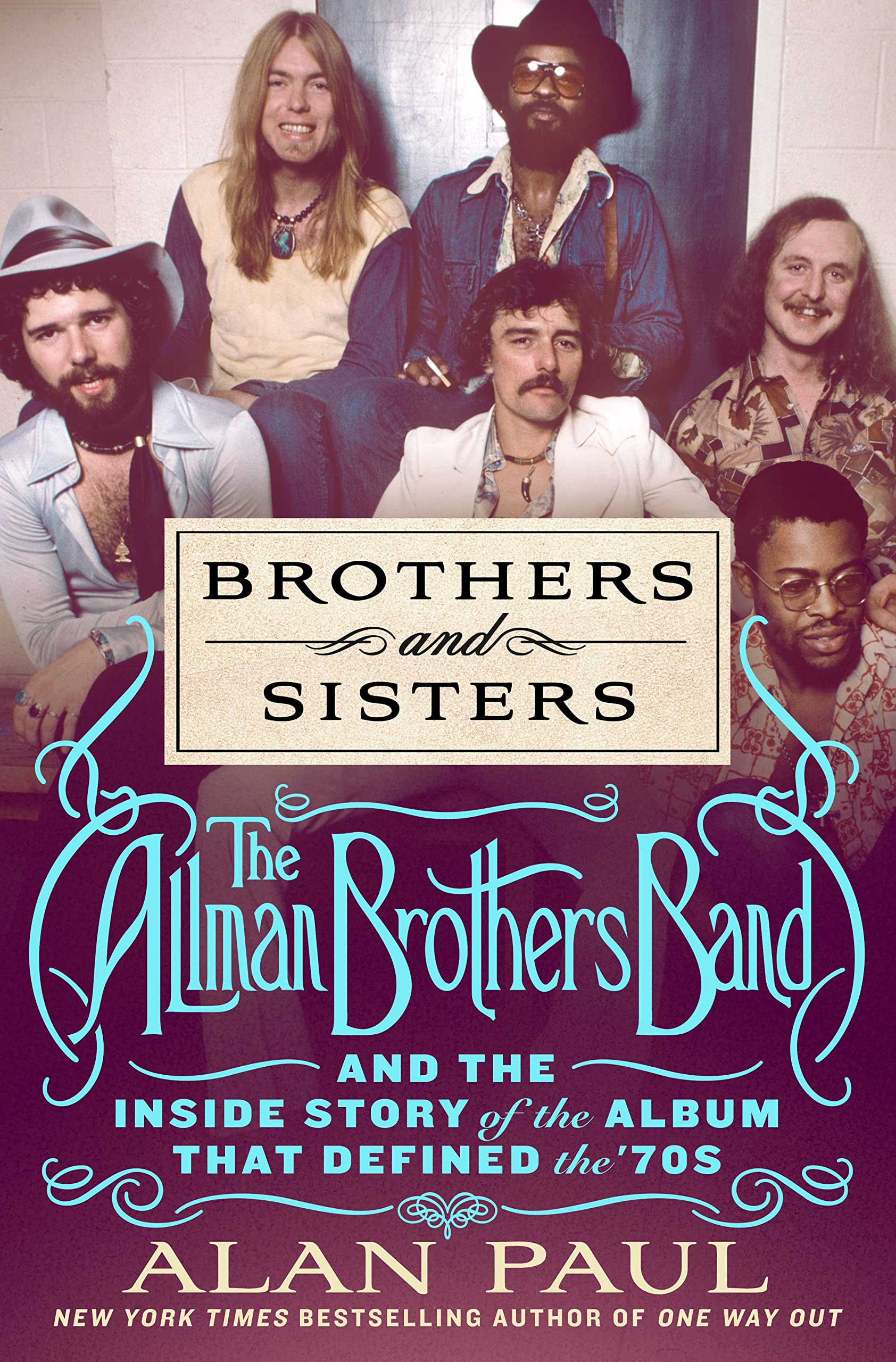 The Allman Brothers Band’s significant run during the 1970s is the subject of a new book by bestselling author Alan Paul. Brothers and Sisters: The Allman Brothers Band and the Inside Story of the Album That Defined the 70s arrived July 25, 2023, via St. Martin’s Press. It’s available in the U.S. here and in the U.K. here. The book takes a deep dive into the time before and after their 1973 release, Brothers and Sisters, the band’s best-selling album, at over seven million copies. Celebrating the recording’s 50th anniversary, the Brothers and Sisters book delves into the making of the album, while also presenting a broader cultural history of the era, based on first-person interviews, historical documents and deep research and a trove of never-before-heard interviews conducted by the band’s “tour mystic,” Kirk West.
The Allman Brothers Band’s significant run during the 1970s is the subject of a new book by bestselling author Alan Paul. Brothers and Sisters: The Allman Brothers Band and the Inside Story of the Album That Defined the 70s arrived July 25, 2023, via St. Martin’s Press. It’s available in the U.S. here and in the U.K. here. The book takes a deep dive into the time before and after their 1973 release, Brothers and Sisters, the band’s best-selling album, at over seven million copies. Celebrating the recording’s 50th anniversary, the Brothers and Sisters book delves into the making of the album, while also presenting a broader cultural history of the era, based on first-person interviews, historical documents and deep research and a trove of never-before-heard interviews conducted by the band’s “tour mystic,” Kirk West.
From the publisher’s announcement: The five-year period between Duane Allman’s 1971 death and the Allman Brothers Band’s 1976 breakup was a remarkable run for the group that helped define the era, rock history and American culture and politics. They played a major role in electing President Jimmy Carter; were intimately linked with the Grateful Dead; and inspired the Marshall Tucker Band, Lynyrd Skynyrd and the entire Southern Rock genre. Gregg Allman’s marriage to the superstar entertainer Cher also put the couple at the vanguard of a newly emerging celebrity media culture.
A wide range of fascinating, crucial characters pass through the pages of Brothers and Sisters. Not only Jimmy Carter and Cher, but Bob Dylan, Jerry Garcia, and many others. The book includes several extensive chapters on the Jam at Watkins Glen, the concert featuring the Allman Brothers Band, Grateful Dead and The Band that drew over 600,000 people to a small town in upstate New York that will celebrate its 50th anniversary in July. Brothers and Sisters includes the deepest reporting and writing yet about about the bond between the Allmans and the Dead and just what drove them apart. There are also chapters about the making of a pair of solo debuts, Gregg Allman’s Laid Back and Dickey Betts’ Highway Call. The book also contains the complete inside story behind Cameron Crowe’s film Almost Famous, which was largely based on his experiences touring with the Allman Brothers Band for a 1973 Rolling Stone cover story. Of the book, Crowe writes, “By the first page, you’ll feel the band, hear the guitars, the elemental voice, and the magic of our most unforgettable band. There is no greater tour guide on this journey.”
The 352-page Brothers and Sisters, available here, is enlivened by content from Kirk West’s never-heard interviews. “Kirk was researching a book while the band was broken up in 1986 and 1987 and he interviewed all the surviving members extensively: Gregg Allman, Dickey Betts, Jaimoe and Butch Trucks, as well as many other friends and associates,” says author Paul. “The subjects were talking to someone they deeply trusted, the band was twice broken up with no plans to reunite and everyone was bracingly honest and deeply reflective and insightful. The interviews were an absolute gold mine, most of which not even Kirk had ever listened to.”
“40 years later I learned so much it surprised me,” says West. Founding member, Jaimoe, himself notes, “Alan Paul is our Jimmy Olsen. He’s one of the only cats who even knows what questions to ask. I’m glad he’s now told the story of this era.”
Chuck Leavell writes, “For a fledgling 20-year old piano player in 1972, being asked to join the Allman Brothers Band was like entering Heaven. There were ups and downs during the making of Brothers and Sisters, but it still stands as the band’s most popular and best-selling record. Alan has captured the era with deep research and his savvy writing.” Adds the band’s Warren Haynes, “No journalist knows the ins and outs of the Allman Brothers Band better than Alan Paul.”
Paul posted a tribute to Dickey Betts when the legend died on April 18, 2024.
Forrest Richard “Dickey” Betts
12/12/43 – 4/17/24Betts was a musical giant whose melodic sense, bone-deep guitar playing and fantastic songwriting -“Blue Sky,” “Jessica,” “Liz Reed” formed the backbone of the Allman Brothers Band, the greatest American rock band.
1/3 pic.twitter.com/PiTdL8pD4r— Alan Paul (@AlPaul) April 18, 2024
Related: Our Album Rewind of the 1973 album, Brothers and Sisters
Paul is the author of the New York Times bestseller One Way Out: The Inside History of the Allman Brothers Band, the definitive book on the Rock & Roll Hall of Fame band and Texas Flood: the Inside Story of Stevie Ray Vaughan. The latter has been optioned and is being developed for both documentary and feature films. His first book, Big in China, is about his experiences raising an American family, forming a band and becoming an unlikely rock star in Beijing. He also founded Friends of the Brothers, the premier celebration of the music of the Allman Brothers Band, featuring members of the Dickey Betts, Jaimoe and Gregg Allman bands. He is a frequent contributor to The Wall Street Journal, Guitar World, and other publications.


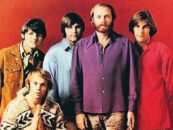
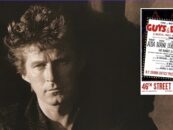
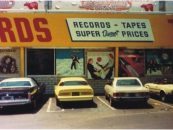
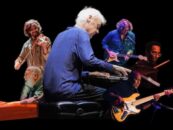

9 Comments so far
Jump into a conversationGood. This album was in many ways the very last swan song of the sixties counter culture. It is not coincidence that when the ABB died in 1976 so did guitar driven rock music as a direct cultural force. Alan Paul can write, which is helpful. His next book needs to be a deep dive into what happened when Derek, Warren and Oteil joined the remains of the ABB for its elegant and inspired third act.
Hey thanks. On all fronts. Several people have raised that last-era ABB book with me. I’m not sure about it. I feel like I covered it poretty well in One Way Out, but I’m pondering and exploring!
Jaybird,
Spot on with your comments, and your wish for The ABB’s third act to be told. I’m coming up on 66 and have been a been a fan from the early days. I knew I was on to something when the band’s music coming from my transistor radio drove my Dad out of the room. Tracks from throughout the history of The Allman Brothers and the individual band members’ other ventures and collaborations fill the soundtrack of my life. “Bell Bottom Blues” from Derek & The Dominos, is playing as I type these words.
I had the great fortune to visit the band’s house (now museum) last Summer on a slow day. With a recently-reunited dear friend from childhood, we took in every artifact, picture, and story from The ABB’s early days. The staff there was wonderful to visit with, and also filled in some (unknown-to-me) history of the band that you’ll likely hear nowhere else. It was cool to find that the bandmates and their extended families lived in what was a former Governor’s private mansion. It’s really quite an amazing place. You’ll see the spots where certain songs were inspired, including “Jessica” and “Blue Sky”.
While the downstairs is fascinating treasure trove of memorabilia, the upstairs is where they lived, hung out together, and jammed. It looks like they just left for the road, but might be back tomorrow. It was said that the wives helped restore each bedroom, along with their family room/studio, to exactly as they were during the early days. For those who came of age in the 60’s and 70’s, the sound system will bring back memories.
As Jimmy Carter’s time on Earth winds down, the front room dedicated to the band’s role in getting him elected is especially poignant.
If you’re ever in Atlanta, it’s well worth taking a full day and heading down to Macon. Visit the museum, as well as the haunts the band frequented. In addition to grabbing a bite and checking out the pics and artwork at H&H soulfood restaurant, go see Capricorn Records studio. Have the museum staff tell you how to find the cemetery plot with the graves of Duane, Berry, and Gregg, as well as the nearby headstone for Elizabeth Reed. It’s a truly eerie, yet somehow peaceful experience.
I can’t wait to read Alan Paul’s stories about the band and the Brothers. The comments from those who lived through those days tell me it’ll be worth the wait.
Thank you!
So, On This Lp, A Little Unknown Guitarist Named Les Dudek, Played On B&S’s. Will The Book Explain His LACK OF Credits, and WHY He was omitted from Future References ???, I Mean Rolling Stone Magazine ( When it was STILL Relevant, Named His Solo Lp, “Say No More” 1 of the Most Underrated Lp’s of the 70’s !!
I believe “One Way Out” gave an unflattering paragraph to Les regarding B&S.
I notice that he did get a songwriting credit for one of my favorite songs on “Book of Dreams”, “Sacrifice”. Which was on Dudek’s first LP.
And your favorite AOR station probably played “Old Judge Jones” quite a bit in 1977. I did not know that Bruce Botnick produced it.
Bruce HAS GOT to write an autobiography.
While I certainly don’t dislike “Brothers and Sisters,” to me the album represented a shift in the sound and energy of the Allman Brothers Band. Perhaps it was their new reliance on piano in such significant doses on this record, but I felt like the band lost much of the powerful edge it once had, and I’m not sure it ever really got it back. Before Duane and Berry’s deaths, Dickie Betts’ country side was a nice additional flavor the band could easily encompass in a way that seemed natural to them. But post-Duane, Betts’ same country influence became too much of the band’s personality, and the band seemed to lose it’s more blues-oriented sound and approach. The Allmans’ very first LP, produced by Adrian Barber, while having great songs, had a strange kind of muddy fidelity to it. Personally, I loved the way the band sounded on “Idlewild South” where the production and the music seemed to find each other in a way that sounded more naturally like the band live. Then, of course, having such huge hits with “Live At The Filmore” and even a live half of “Eat A Peach” kind of left fans with few reference points to how a studio LP should sound, though the other half of “Eat A Peach” did give us some indication of the direction that the band’s songs and sound on their studio albums would be taking, especially as that studio side featured much of the band finding itself after losing Duane. But, regardless, the characteristic fidelity of what we knew as the Allman Brothers was there on “Eat A Peach,” thanks again to producer, Tom Dowd. All that said, I’ve always thought “Brothers And Sisters” had kind of a flat sound quality with everything right up in your face, much like demos often sound. I never got the feeling of “presence” from that record, even through the good songs that are on it. I suspect the main culprit between studio LPs is that the incredible Tom Dowd produced both “Idlewild South,” and “Eat A Peach,” while Johnny Sandlin, who was a friend of the band, produced “Brothers And Sisters.” To me, the difference is significant and not a good significance. I suspect Tom Dowd produced the Allmans earlier albums because of Duane’s relationship with him, as he produced “Derek & The Dominoes,” many of Clapton’s solo records, and the best fidelity that Lynyrd Skynyrd ever got on any of their records with “Steet Survivors,” among so many other huge records that he produced. There are none better at recording and producing that kind of music than Dowd. Once Duane was gone, the band shifted to Sandlin out of friendship, if I remember correctly, and the Allmans’ records have never sounded as edgy or had more impact, to my ears, ever since.
Interesting perspective, but I think the band was just changing directions moving forward because it had to to survive and thrive..It was a different time in the years following Fillmore East, and the band was more song orientated, but in terms of song quality Brothers and sisters has memorable songs, keeping the tradition of the earlier jam based blues orientated songs, Jessica and wasted words are great and blue sky is always a pleasure. It was now more of a Dickey Betts band, and he was definitely more country orientated and they went a little more commercial which they needed to do to survive to me. They became a better band all around adding Chuck and Lamar if you listen to the underrated live album, wipe the windows, check the oil you’ll be amazed at the musicianship displayed on memory of Elizabeth Reed, which is to me better than the Fillmore version plus the ramblin Man live version is tremendous. Dickey really goes off. Brothers and sisters was just a step forward that needed to happen for them to survive. It wasn’t extended, blues, jams via Duane, but it was Dickie coming to the forefront.
Agree with James’ assessment above; different band/different musical direction without
Skydog, but still exceptional musicianship nonetheless.
Being an ABB disciple, I am looking forward to the release, and my reading of, the entire content of “Brothers and Sisters: The Allman Brothers Band and the Inside Story of the Album That Defined the 70s”.
IMO, “Brothers and Sisters”, is an unparalleled ABB studio LP, to this day – although 2003’s “Hittin’ The Note” comes extremely darn close.